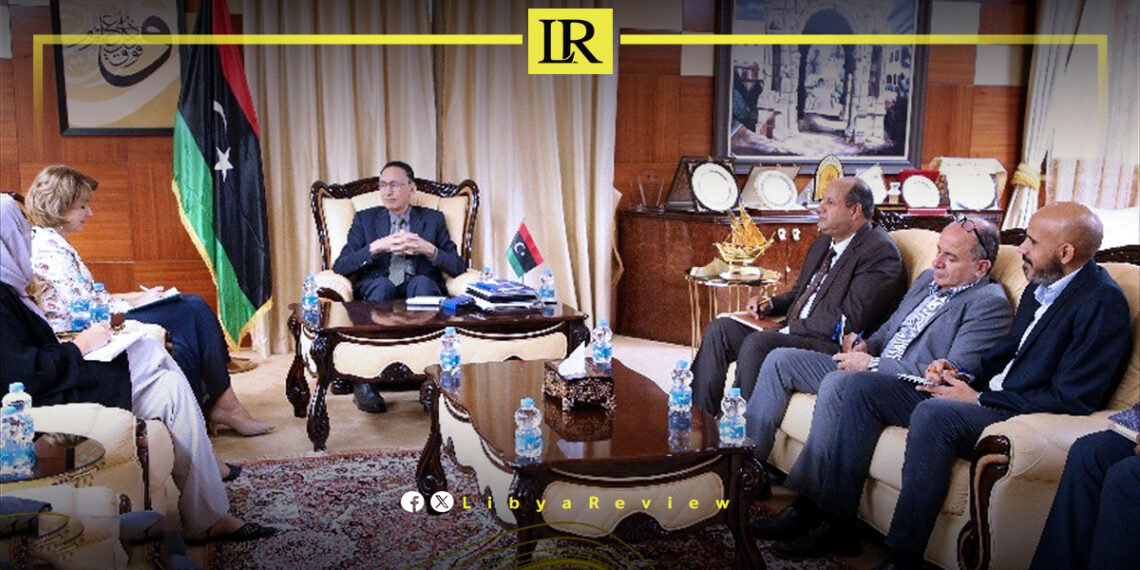On Monday, Libya’s Minister of Economy and Trade, Mohamed Al-Hwaij, expressed a strong commitment to driving stability in the country through extensive economic reforms.
During a meeting with Sophie Kim Hazza, Director of the United Nations Development Programme (UNDP) in Libya, Al-Hwaij detailed plans for economic diversification and development, which he believes are essential for the country’s future.
The discussion centered on strengthening cooperation between Libya and the UNDP, with a particular focus on implementing Libya’s economic development strategy. This partnership, according to Al-Hwaij, is critical to improving the nation’s financial situation and achieving long-term growth, aligning with the United Nations’ 2030 Sustainable Development Goals (SDGs).
Al-Hwaij emphasized the importance of implementing a unified approach to economic reforms across Libya’s financial institutions. He pointed out that learning from successful international models will be key to ensuring these reforms contribute not just to economic recovery but also to political stability. He believes that a stable economy is the cornerstone of resolving Libya’s prolonged political crisis, which has plagued the country since the fall of Muammar Gaddafi in 2011.
The minister underscored that Libya must reduce its dependence on oil revenues and diversify its economy. Boosting trade, attracting foreign investment, and enhancing private sector development are all vital elements of the broader economic strategy aimed at reintegrating Libya into the global market.
Sophie Kim Hazza, representing the UNDP, assured Al-Hwaij of the organization’s continued support. She stressed that the UNDP will provide technical assistance to Libyan institutions as they work to implement these critical reforms. The UN agency will also focus on capacity building and providing expertise to help Libya strengthen its governance structures and ensure the successful execution of its economic policies.
Despite the country’s vast resources, Libya’s economy has been severely damaged by years of conflict and instability. Al-Hwaij and the government recognize that political stability is inextricably linked to economic recovery, and they view the upcoming reforms as a necessary step toward a peaceful and prosperous future.


